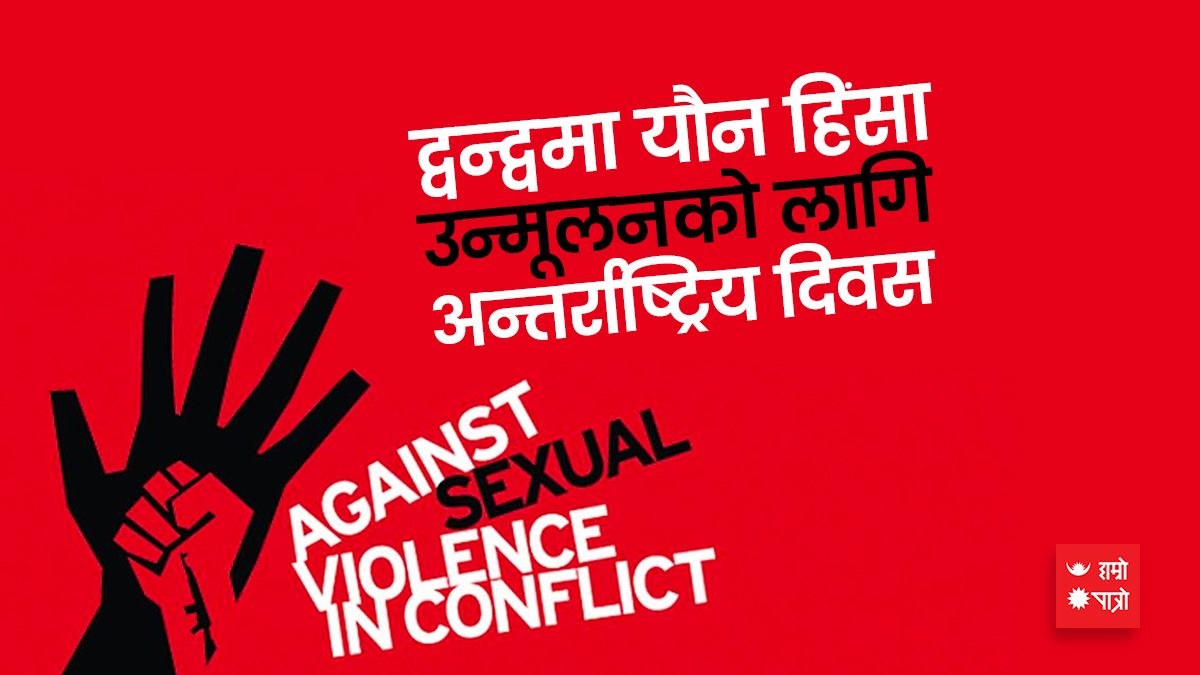
International Day for the Elimination of Sexual Violence in Conflict is a United Nations observance on June 19 to raise awareness of the need to put an end to conflict-related sexual violence.
What is Conflict-Related Sexual Violence?
The United Nation defines conflict-related sexual violence as a term that "(...) refers to rape, sexual slavery, forced prostitution, forced pregnancy, forced abortion, enforced sterilization, forced marriage, and any other form of sexual violence of comparable gravity perpetrated against women, men, girls or boys that is directly or indirectly linked (temporally, geographically or causally) to a conflict".
The world has seen war, the world is still on the verge of several wars and disputes. The scars of war are in almost every country and their background. A ruler or soldier of any other caste, religion, country, or identity ruthlessly defeats a weak country or defeated parties.
In this way, during and after the war, there is sexual violence against the citizens of the war-torn country. Millions of people are and continue to be victims of such violence every year.
There are also rules of conflict where there are many, including not attacking unarmed people, not attacking health centers, but the rules of war are not violated anywhere else. In war-torn areas, military or other factions and elements taking advantage of statelessness tend to condone rape, which is extremely wrong.
Children born of sexual violence and rape during the war have to struggle for identity and their survival for decades after the end of the war is still on the harsh side.
Even after the war, their mother has to be despised by her community and family. Welcoming you all on June 19th, 2020, the International day against sexual violence in conflict. This day, the United Nations wants to raise the voices of victims of sexual violence during the war and invites everyone for the solidarity to unite against the discrimination, shame, and social polarization they have suffered.
Secretary of the United Nation
Antonio Guterres
Even in Nepal, many such incidents and abuses have taken place during the armed conflict and we are still witnessing its occurrence and effects in society. The issues and problems of children born of sexual violence in warfare last for generations, while the sufferings of women who have been subjected to such violence and their voices and echoes last for centuries. Thus, thousands of people die prematurely due to unsafe abortions and other sexual and reproductive, and socio-psychological problems after the sexual violence that took place during the war. Every year on the 19th of June, the United Nations celebrates the International Day for the Elimination of Sexual Violence in Conflict.
Thus, children born during the conflict are more likely to have poor physical and mental health, as well as a lack of identity and legal protection.
Indirectly, these children are also born as victims of conflict. Due to a lack of citizenship and other identification of these children, most of them are taken to other risky areas including organ trafficking and human trafficking, which is painful and tragic. Today also advocates that it is necessary to stop all war crimes committed against the innocent, helpless, and unarmed. Hundreds of African countries and others, including Palestine, Syria, and Iraq, are still at risk of external or internal conflict and its aftermath.
May the long-awaited justice be delivered to the conflict victims of Nepal, may their tragedy be responded with equality, and may the scars of war have less impact upon our society.
The impact of COVID-19 on survivors of conflict-related sexual violence
The chronic underreporting of conflict-related sexual violence, due to stigma, insecurity, fear of reprisals, and lack of services, has been compounded by COVID-19 containment measures. Lockdowns, curfews, quarantines, fears of contracting or transmitting the virus, mobility restrictions, and limited access to services and safe spaces, as shelters closed and clinics were repurposed for the pandemic response, added a layer of complexity to existing structural, institutional, and sociocultural barriers to reporting.
The pandemic has laid bare the intersecting inequalities that plague our societies, as compounded by conflict, displacement, and institutional fragility. The only solution for these overlapping ills is an injection of political resolve and resources equal to the scale of the challenge.
International Day for the Elimination of Sexual Violence in Conflict 2021 deals with conflict-related sexual violence and the pandemic impact on them simultaneously.
Meaningful wishes of this day.
Suyog Dhakal
Liked by: